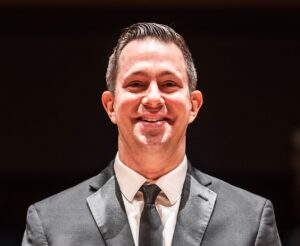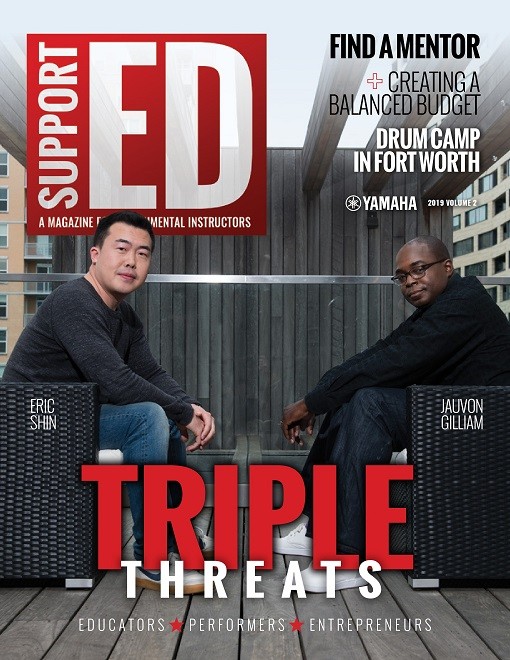
Letter to Myself: Douglas Droste
Yamaha Master Educator Douglas Droste is the Director of Orchestral Studies at Baldwin Wallace University Conservatory of Music in Muncie, Indiana.
Dear Younger Doug:
As I reflect on my 23 years as a music educator, I want to share my knowledge and give you six pointers that will help you as you start your career.
Stay Organized: Keep a constant to-do list and write things down so you don’t forget. Stay ahead of your classes and always be prepared for rehearsal.
Delegate: Find tasks (setting up chairs and stands, organizing music, etc.) that responsible students or parents can handle to free up your time to prepare for rehearsal. Use (or organize) a parent booster group to help with fundraising and other support.
Communicate: Make sure to communicate with everyone more than once. Your students, colleagues, coaches, administrators and parents are juggling a million things. Consistent reminders of concerts, extra rehearsals and trips — through different channels (website, email, letters home, face-to-face meetings, etc.) — will help. Sure, you will always have kids say, “I didn’t know we had a major festival performance this weekend,” but they will be the minority.

Stay Positive: You will lose your cool early on and get frustrated with students who don’t seem as interested or intense about music as you are. You just graduated with a degree in music education, landed your first job and are ready to change the world in small-town Ohio. But you have to understand that students have a lot going on in their lives. If they have a bad attitude, it could be a personal issue at home, hormones, hunger, being scared or intimidated, … and often it has nothing to do with you or music. Stay positive and calm. Take a deep breath and realize that these are children who are still learning how to deal with their emotions. You most likely will win them over, but as Theodore Roosevelt said, “Nobody cares how much you know until they know how much you care.”
Document: It’s vital to document everything, especially disciplinary situations or difficult meetings with students or parents. Stay professional during parent meetings — listen without interrupting, speak with a caring tone and cite your documents if needed. (My principal once told me this very thing after a parent meeting.) You are there to help the student, not prove who is “right” or “wrong.”
Keep Growing and Learning: Last but not least, keep growing as a musician! Observe fellow directors as much as possible, score study more advanced music, keep working on piano and other instruments you teach, make time to play and perform on your primary instrument, go to concerts and listen to great music.
Remember, you have chosen one of the greatest and most rewarding professions in the world.
Good luck!
Douglas in 2019
This article originally appeared in the 2019 V2 issue of Yamaha SupportED. To see more back issues, find out about Yamaha resources for music educators, or sign up to be notified when the next issue is available, click here.









